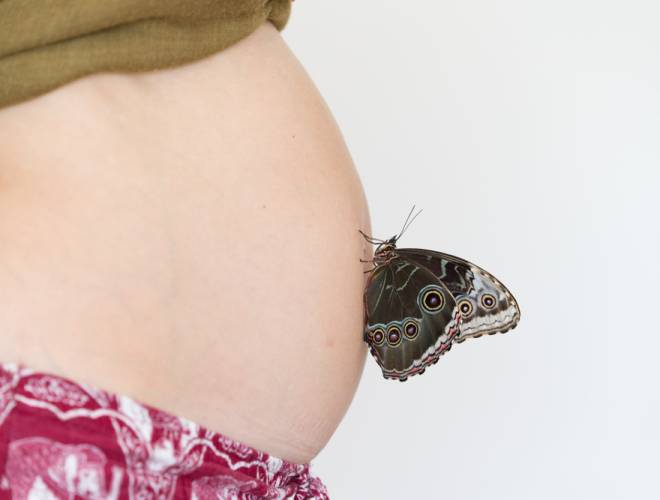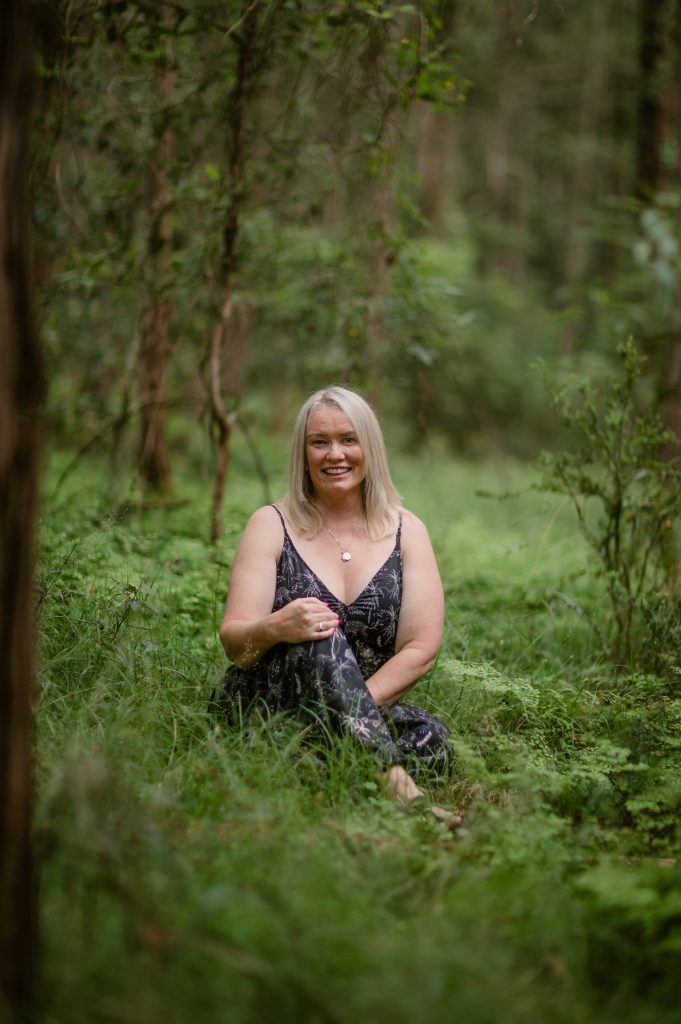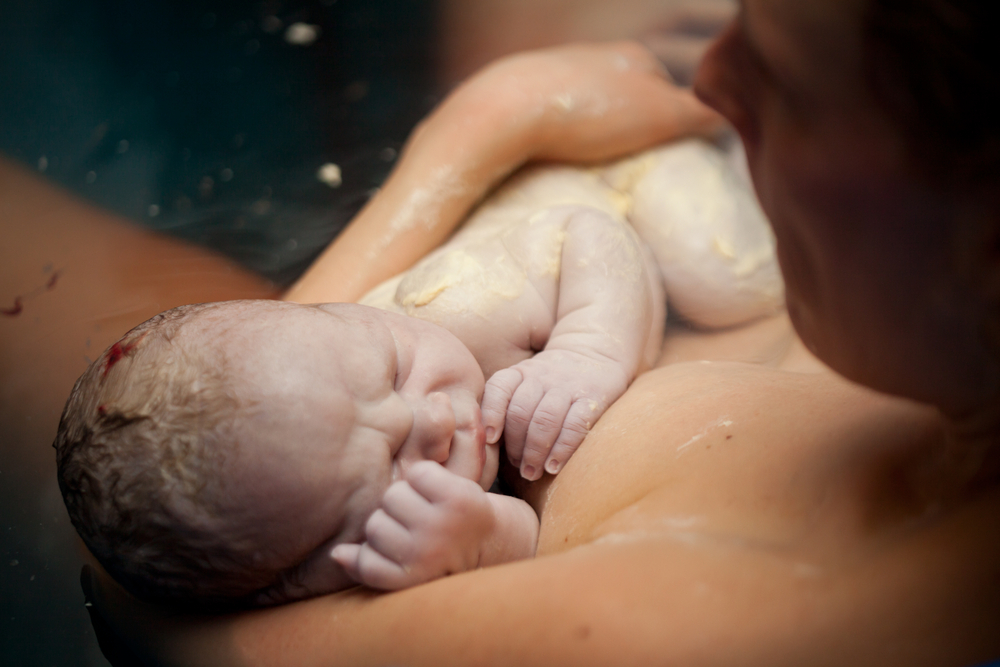Category: News

Celebrating World Hypnobirthing Day – 21 March 2023
I’ve talked about the medicalisation of a childbirth before. There is no denying that medical intervention has its place, and is sometimes very necessary. However, the large majority of the time, our bodies know what they need to do. Hypnobirthing harnesses the power of the mind over the body, to help this process unfold as it was intended.
Nowhere is the link between our mindset and the response of our body as evident as it is in childbirth, because the hormones produced by our brains have a direct correlation to our body’s ability to function.
If we go into birth with knowledge, not fear, and faith in our body’s ability to successfully give birth, we increase the chances of that exponentially. So let’s take a look at how Hypnobirthing can help ensure you take a calm, empowered, positive mindset into your birthing experience.
The History of Hypnobirthing
As far back as the 1920s Dr Grantley Dick-Read began to propose the idea of a ‘natural’ birth, which he wrote about in his 1942 book Childbirth Without Fear, where he discussed breaking the fear-tension-pain syndrome.
In 1989, as a result of her own birthing experiences, Marie Mongan founded the Hypnobirthing Institute, with the belief that:
“every woman has within her the power to call upon her natural maternal instinct to birth her babies in joy and comfort in a manner that most mirrors nature.”
In her book “Hypnobirthing – A Celebration of Life” Mongan laid out her ideas and techniques for birthing in a calm, relaxed and peaceful way.
What is Hypnobirthing?
While the name suggests hypnosis, this is only one aspect of hypnobirthing. In reality, the techniques used are all aimed at creating a calm and positive mindset, which results in physiological changes in the body to improve the experience of labour.
When we are fearful or anxious, not only do our bodies become tense, but our brains produce stress hormones like adrenaline and cortisol. These hormones can increase your perception of pain. Conversely, when we are calm and relaxed, our brains produce endorphins and oxytocin, which reduce pain perception and help move labour along.
Hypnobirthing techniques assist you in turning your attention inwards, allowing you to tune out peripheral activity and concentrate on the task at hand – calmly birthing a healthy baby.
Techniques
There are a range of techniques used in hypnobirthing. You may find some work better for you than others, or that certain techniques work at certain stages of labour. These techniques include:
- Breath management
- Self-hypnosis
- Massage
- Movement
- Deep relaxation techniques
- Acupressure
- Vocalisation & Visualisation
Benefits of Hypnobirthing – Here’s the Science…
There are lots of anecdotal and quantified studies on the benefits of Hypnobirthing. The WA Government recently conducted a pilot study, which they have since rolled out to more WA hospitals. The results included:
52% fewer caesareans
40% reduction in morphine use
32% reduction in epidurals
15% fewer inductions
In the US, where more studies have been conducted, a 2010 study found that:[i]
Hypnobirth General
Caesarean Rate 17% 32%
Required Analgesia <10% 22%
Had Epidural 20% 76%
Anecdotally, birth practitioners around the world have noted Hypnobirthing results in:
- Reduced rates of intervention and the need for pain relief
- Reduced rates of birth trauma and post-natal depression
- Shorter labours
- Higher Apgar scores*
- Faster post-birth recovery for both mum and bub
An additional benefit of using Hypnobirthing techniques is they provide your partner with an active, positive role to play in the birth process, helping them feel more involved and useful.
Pre & Post Natal
Hypnobirthing techniques can also be used both pre and post-natally. In fact, Catherine Middleton, Princess of Wales, who famously suffered from Hyperemesis Gravidarum (extreme ongoing morning sickness) during all three of her pregnancies, used hypnobirthing techniques to help her manage her condition, as well as during labour.
These same techniques are also showing signs of success when used postnatally to assist in recovery from a traumatic birth, and from mild postnatal depression and anxiety.
How Do I Have a Hypnobirth?
There are a wide range of Hypnobirthing courses on offer through hospitals, online or in person. Hospital run courses are often very basic, and are generally aligned with hospital protocol. Private courses are more comprehensive and provide more in-depth birthing options. My personal favourites are:
Hypnobirthingaustralia.com.au
Calmbirth.com.au
Shebirths.com
If you would like to know more about how Hypnobirthing can help you achieve a calm, positive and empowered birth, I would love to chat. Give me a call on 0422 258 771. or contact me here.
*An Apgar Score is a scale on which the health of a newborn is evaluated, and it is taken at 1 and 5 minutes post-birth. It is a assessed over five criteria – skin colour, pulse, breathing, muscle tone and reflexes. Each criteria is scored out of 2, giving a maximum score of 10. A score of 7 or above is considered optimal.
[i] https://www.ncbi.nlm.nih.gov/pmc/articles/PMC4744344/#:~:text=HypnoBirthing%20(the%20Mongan%20Method)%20was,with%20Mongan's%20own%20childbirth%20experiences.

Why I'm a Doula
Love is the foundation upon which a positive birth begins
All my life I’ve been a carer and nurturer. So in a way I think becoming a doula was my destiny. Being a birth keeper just makes my heart sing.
How I Got Started
Four or five years ago, after having my children and helping my husband set up our family business, I decided it was time to follow my heart’s calling. I started looking for a course that would help me become the best doula I could be. I didn’t want a quick course. I wanted to become a full-spectrum doula, so for me the course had to turn over every rock to help me understand how best to support and guide my clients.
The course I chose was comprehensive and drew on the knowledge and experience of a range of brilliant practitioners. We covered an extensive range of topics, including birth as a somatic[i] practice, breastfeeding, massage and acupressure, and baby wearing. Of course, we also did a deep dive with Evidence Based birth.
Once my initial course was completed I went on to study Spinning Babies, and learn about Optimal Maternal Positioning. I studied baby massage and bodywork with Jenny Blythe. To ensure I had the skills and knowledge to provide nutritional support I did the Milk & Seed Medicinal Kitchen and Little Yarrow Botanical Medicine courses.
The depth and breadth of this course was incredible, and I am grateful to have been able to receive what I consider the best doula training in the world.
My Philosophy
The training I have done, along with my own birth experiences, has allowed me to develop a strong sense of who I am as a doula, and what I can offer women and their partners during the pregnancy, birth and postpartum period. If I had to sum my approach up in three words it would be gentle, nurturing, and holistic.
Pregnancy – is a time where my role as a doula is to gently coach, educate and support women and their partners both mentally and emotionally. It is also the time to prepare the body for birth by staying fit and healthy.
Birth – Birth is a normal and natural process. Our bodies were perfectly designed for the task. Often the medical and hospital system don’t allow for those natural processes, and how we are treated while birthing can have an effect long after the baby arrives. It is my role to help ensure mothers feel safe in the birthing experience.
Postpartum – Ahh, being with women postpartum is my favourite part of my role as a doula. Sadly, our modern lives haven’t allowed us to experience a slow postpartum where we honour the huge transition from maiden to mother. This is the time mothers need a woman to hold sacred space, and to nourish and replenish their tired bodies with healing foods, massage and comfort. It is important to normalise how we talk about postpartum, and the need for comfort, care and support. Women don’t need expensive prams, they need the care of a doula to not just survive, but to thrive in this magical period.
My Advice
Pregnant women and new parents are bombarded with advice, whether they ask for it or not. Even the most well-meaning advice can be unhelpful, particularly if it doesn’t sit well with the beliefs of the new parents. Whilst listening to advice can be confusing, educating yourself on your choices and coming to an understanding of how you want your experience to be will help you feel empowered and centred, and help you learn to trust your own instincts.
This is a time when trust is vital, which is why having an honest connection and understanding with my clients is so important. If I don’t feel we have the right fit I will refer a client on to someone in my doula network who I think will be a better match.
Every woman is different, every birth is different, every family is different, and I adjust my support and guidance to suit.
One piece of advice that is universal, though, is you can never have too much support. Take it slow, give yourself the time for self-care, and don’t ever feel like you need to compare yourself to others.
Oh, and you can never spoil a baby with too many cuddles!
What I Love Most
Whilst I absolutely love watching a woman or birthing person unravel and transform before my eyes into a mother, one of my favourite things is to see the changes in men as they become dads. The new generation of dads are just awesome. Gone are the days when caring for bub was left to the mum. Dads are now stepping up. Watching men get all soft and mushy, wearing their baby and having skin-to-skin time is just so heartwarming.
No two days are the same for a doula, but at the end of the day I love going to bed with a full heart, knowing the positive impact I have had on the parents and babies I work with.
I recently saw a quote. I have no idea who said this, but for me it sums up how I feel about my role as a doula:
I think of myself as a binding that holds the book together, while working through each chapter with you. You are the one turning the pages over and becoming invested in the story, YOUR story, and not handing the book to anyone else. You are owning your book, owning your story and owning your power.
If you would like to chat about how I can support you on your journey from maiden to mother, please give me a call on 0422 258 771 or contact me:
[i] Somatic – relating to the body as distinct from the mind

Having a Baby During Covid
Becoming a mum is the most joyous thing in the world, but there are always concerns that trouble you. Will the baby be healthy? How will I cope with labour? Will I be able to breastfeed successfully? These are all natural and normal concerns for expectant mums. This year, though, there is an additional worry. Covid 19. And it’s not something we can turn to our support network to help us with, as nobody has experienced this before.
I always feel that knowledge is power, so let’s take a look at some of the things that might be worrying you, and some of the things you might like to think about in the months leading up to your birth.
Risks to you During Pregnancy
First and foremost, there is no evidence that pregnant women are any more at risk of Covid 19 than the general population. That said, Covid 19 is a respiratory disease which affects your breathing, and if you do contract Covid 19 this could affect your ability to manage your breathing during labour. So what should you do?
- Follow normal hand washing and social distancing protocols
- Wear a mask when out and about
- Avoid crowds and close contact as much as possible
- Avoid hugging and physical contact except for your immediate family
- Talk to your employer about taking additional care in your work environment
A little extra care now might save you some difficulty when it comes to giving birth. And if you are feeling unwell – get tested right away. The sooner you know the sooner you can make informed choices.
Birthing Plans
Whether you have chosen to have a hospital or home birth, it is not necessary to change your plans. However, you should be aware that there have been changes in the way hospitals manage birth and postnatal care, which may or may not have you reconsidering your options.
Hospital Births
Hospitals have always had very good infection control policies, and this is particularly the case in maternity wards. Medical staff are very aware of the need to protect young babies and new mums. Covid 19 has meant that new measures have been introduced, on a hospital by hospital basis. Some of these changes include:
- The number of support people you are allowed during labour and delivery has been reduced.
- Water births have been terminated or discouraged in some hospitals.
- The number and nature of visitors allowed during your postpartum stay has been reduced. Some hospitals are discouraging children from visiting and limiting all visitors to immediate family.
- In-home postnatal care is increasing, so mums and babies are being sent home as quickly as possible.
- Zoom is being used to provide both antenatal and postpartum care as well as birthing education classes.
Since changes that have been introduced are hospital specific, and are changing all the time, you should check with your intended hospital what their current rules are on delivery and postnatal care.
Home Births
The number of women in Australia considering home births has risen from around 4% to about 25% this year. Women are understandably nervous about being in a hospital with so many people coming and going.
Currently there are no Medicare rebates for midwives attending a home birth, although you can get a rebate on home based Pregnancy care and Postpartum care. Some private health insurance will cover home births, so you should check with your provider if you are considering this option.
A great resource for home birth information is Homebirth NSW https://www.homebirthnsw.org.au/
Because of the increase in demand, if you are considering a home birth, contact your chosen midwife early to make sure they are available to support you.
How a Doula Can Help
A doula’s role is to support mum, partner and baby. Despite changes in hospital protocols and the increased level of anxiety and isolation caused by lockdowns, we are still here to do just that, and will ensure that even though your birth might not look quite how you originally imagined, it will still be a joyous and special event.
During pregnancy a Doula can help you prepare physically and emotionally for the birth, so when that incredible time comes you feel empowered by the knowledge you have gained.
If your hospital has restricted the number of people allowed at your birth a doula can provide you with a letter outlining the reasons you require a doula for the hospital to consider. Should your doula not be allowed in the birthing room, phone and video call support is always available.
Your doula will support you in labouring at home as long as you can, to reduce the length of time you are labouring in the hospital.
With postnatal hospital stays being reduced, good postpartum care is even more important. Your doula will be available to care for you and baby and ensure you both get the rest and nourishment you require in those precious first days and weeks.
This might all seem like a lot to consider on top of everything else you are dealing with but you are not alone. Part of the role of the doula is to keep abreast of the constantly changing landscape. They will honestly discuss your options with you and provide you with the information you need to make the decisions that are best for you, your partner and your baby.
If you would like to know more about how Covid 19 might affect you, your baby and your birthing experience, or talk about your pregnancy and birthing plans or concerns, I would love to hear from you so please give me a call on 0422 258 771 or get in touch here:
Since my childhood in rural Australia – taking joy in helping my father on the farm, and absorbing a love for nourishing, home-cooked food from my mother – I’ve been passionate about caring for others. I found my calling as a doula through reflecting on my own experiences as a parent of four, from the amazing highs of hearing my babies babble and laugh to the devastating low of losing a much-wanted child at 22 weeks of pregnancy. I often think that having a calm, caring person to be my lighthouse through those stormy times would have been a blessing, and that’s what I now strive to be for every family I work with, whatever their circumstances.
As both an experienced mother and an experienced birthing partner, I view the last weeks of pregnancy and the first weeks of a child’s life as an amazing opportunity to lay foundations for positive parent/child relationships for many years to come. Encouraging and empowering mums and dads during this special time is my heart’s work.